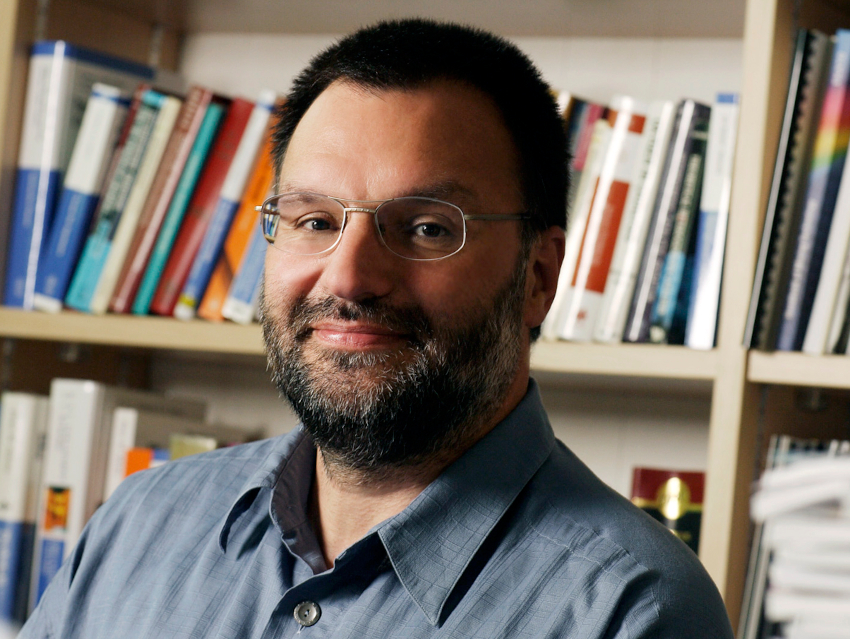Martin Muhler, Ruhr University Bochum and Max Planck Institute for Chemical Energy Conversion, Mülheim an der Ruhr, both Germany, celebrates his 60th birthday on May 4, 2021.
Muhler’s research is focused on industrial heterogeneous redox catalysis. Heterogeneous catalysts are indispensable for large-scale industrial production and are used in numerous applications, e.g., in refineries or energy conversion. Muhler’s interests include selective reduction and oxidation, electrocatalysis, photocatalysis, and syngas catalysis. Reduction catalysis includes, e.g., the synthesis of methanol, the steam conversion of CO, the Fischer-Tropsch synthesis, and the synthesis of higher alcohols. Oxidation catalysis includes, for example, the selective oxidation of propene and methanol, the oxidative dehydrogenation of hydrocarbons, and the selective oxidation of alcohols in the gas phase and in the liquid phase.
Martin Muhler was born in 1961 in Traunstein, Germany. He studied chemistry at the Ludwig Maximilian University of Munich, Germany, from 1980 to 1986. He then became a graduate student at the Fritz Haber Institute of the Max Planck Society, Berlin, Germany, in the group of Gerhard Ertl. Muhler received his Ph.D. in 1989 from the Free University of Berlin. He served as a Postdoctoral Fellow at Haldor Topsoe A/S, Kongens Lyngby, Denmark, until 1991 and then returned to the Fritz Haber Institute as Head of the group “Heterogeneous Catalysis”. Muhler completed his habilitation in industrial chemistry in 1996 at the Technical University of Berlin. In 1996, he was appointed Full Professor in Industrial Chemistry at the Ruhr University Bochum. As part of a Max Planck Fellowship running from 2015 to 2020, he also led the group “Heterogeneous Redox Catalysis” at the Max Planck Institute for Chemical Energy Conversion.
In addition to the Max Planck Fellowship, Muhler has received, e.g., a Karl Winnacker Fellowship in 1996 and the DECHEMA Prize of the Max Buchner Research Foundation in 1999. Among other commitments, he is a Member of the International Advisory Board of the State Key Laboratory of Catalysis at the Dalian Institute of Chemical Physics (DICP), China. He also is a former Chairman of the German Catalysis Society (GeCatS). Muhler is a Participant of the Academies’ Project “Energy Systems of the Future” (ESYS) by acatech (Germany Academy of Science and Engineering), the German National Academy of Sciences Leopoldina, and the Union of the German Academies of Sciences and Humanities and a Member of the advisory board for the Power-to-X (P2X) Kopernicus project, a German research initiative.
Selected Publications
- Photocatalytic Deacon Reaction over SrTiO3,
Tobias Rath, Michel Deitermann, Guixia Zhao, G. Wilma Busser, Henning Jansen, Philipp Schwiderowski, Wei Xia, Martin Muhler,
ChemPhotoChem 2021.
https://doi.org/10.1002/cptc.202000314 - Gd–Ru Nanoparticles Supported on Zr0.5Ce0.5O2 Nanorods for Dry Methane Reforming,
Subhasis Das, Manideepa Sengupta, Arijit Bag, Arun Saini, Martin Muhler, Ankur Bordoloi,
ACS Appl. Nano Mater. 2021, 4, 2547–2557.
https://doi.org/10.1021/acsanm.0c03140 - Nickel Nanoparticles Supported on Nitrogen–Doped Carbon Nanotubes Are a Highly Active, Selective and Stable CO2 Methanation Catalyst,
Julian Gödde, Mariia Merko, Wei Xia, Martin Muhler,
J. Energy Chem. 2021, 54, 323–331.
https://doi.org/10.1016/j.jechem.2020.06.007 - Co@Co3O4 Encapsulated in Carbon Nanotube-Grafted Nitrogen-Doped Carbon Polyhedra as an Advanced Bifunctional Oxygen Electrode,
Arshad Aijaz, Justus Masa, Christoph Rösler, Wei Xia, Philipp Weide, Alexander J. R. Botz, Roland A. Fischer, Wolfgang Schuhmann, Martin Muhler,
Angew. Chem. Int. Ed. 2016, 55, 4087–4091.
https://doi.org/10.1002/anie.201509382 - Thermal Stability and Reducibility of Oxygen-Containing Functional Groups on Multiwalled Carbon Nanotube Surfaces: A Quantitative High-Resolution XPS and TPD/TPR Study,
Shankhamala Kundu, Yuemin Wang, Wei Xia, Martin Muhler,
J. Phys. Chem. C 2008, 112, 16869–16878.
https://doi.org/10.1021/jp804413a - CO Oxidation over Supported Gold Catalysts—”Inert” and “Active” Support Materials and Their Role for the Oxygen Supply during Reaction,
Markus M Schubert, Stefan Hackenberg, Andre C van Veen, Martin Muhler, Vojtech Plzak, R.Jürgen Behm,
J. Catal. 2001, 197, 113–122.
https://doi.org/10.1006/jcat.2000.3069




